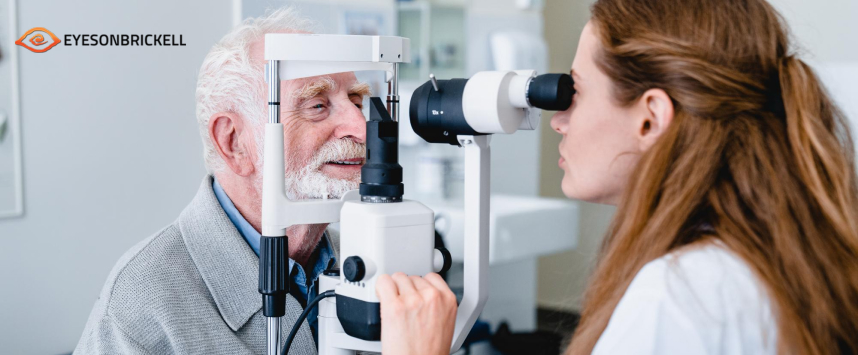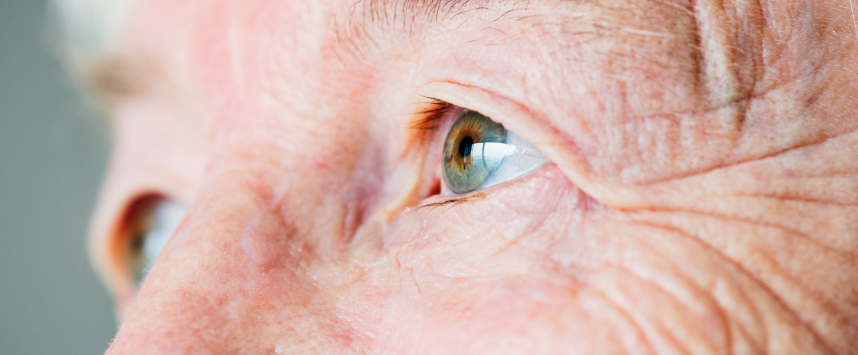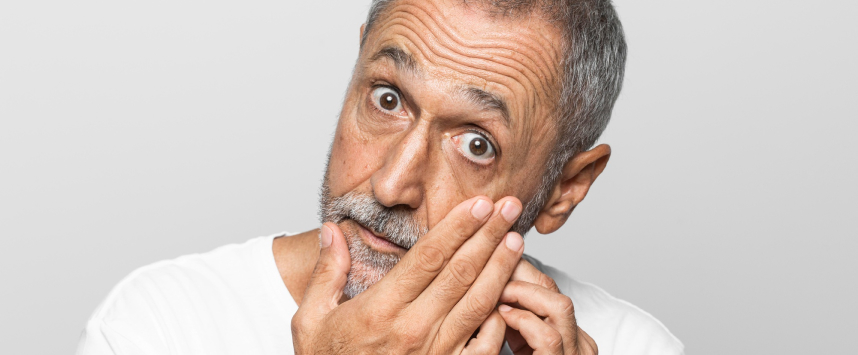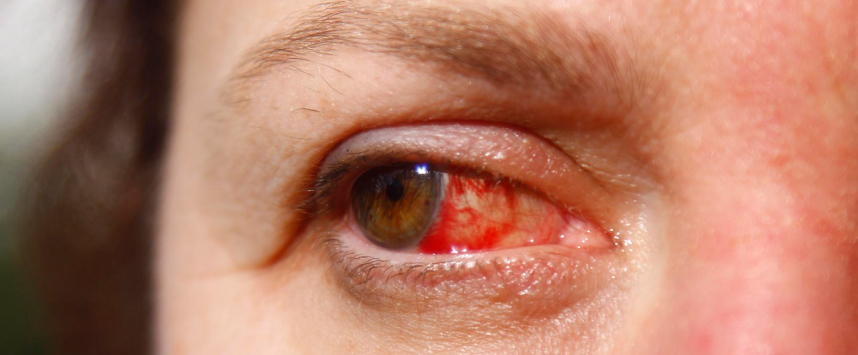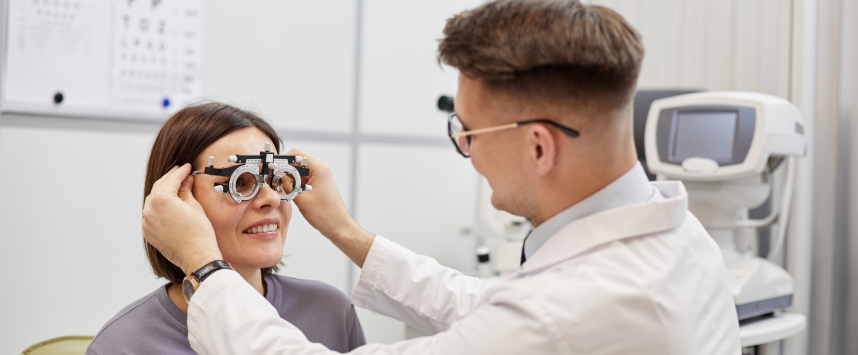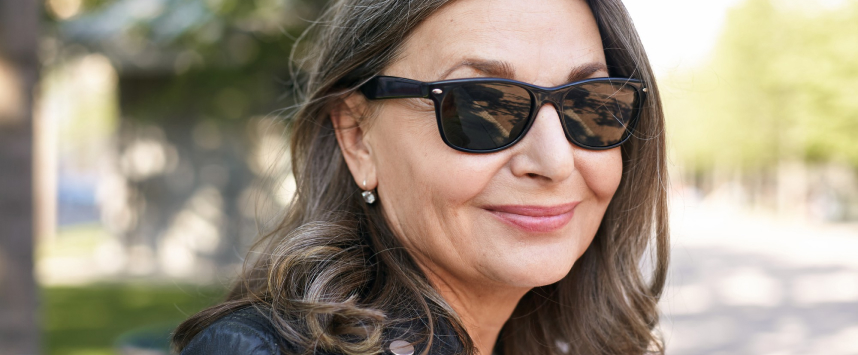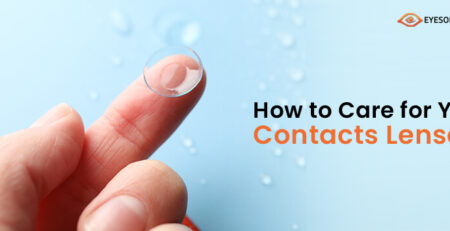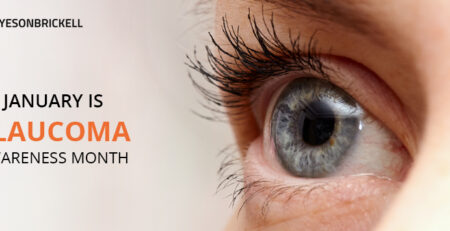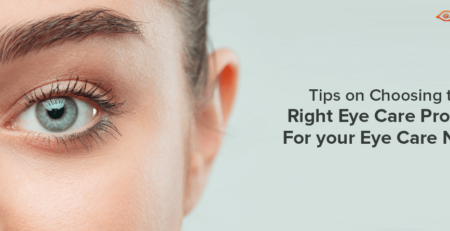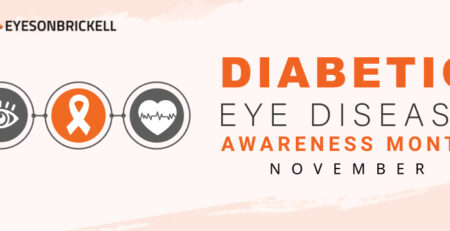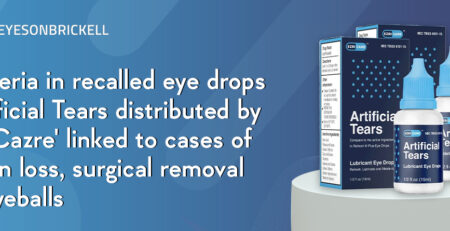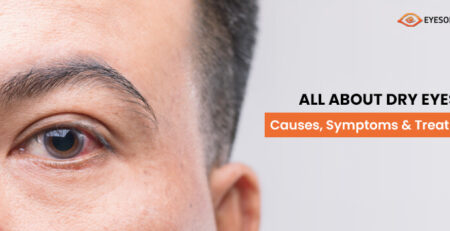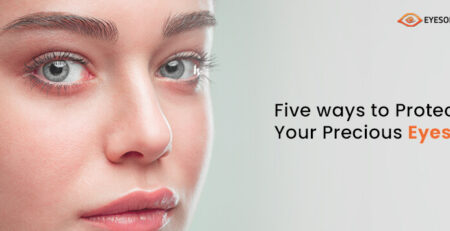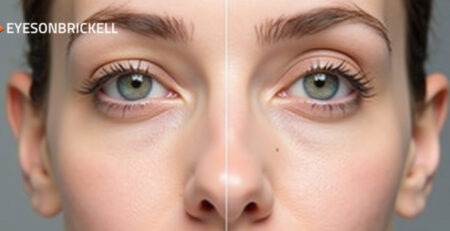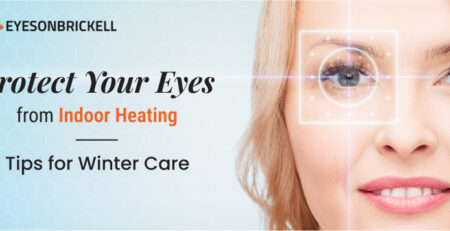Aging and Your Eyes: Effective Tips to Protect Your Vision!
As we age, it’s common to notice changes in our eye health and vision. Just like other parts of the body, our eyes become more likely to face problems as we get older. You might find that your eyes don’t work as well as they used to, and if these issues aren’t taken care of promptly, they could get worse over time. Studies show that 1 in 28 Americans over the age of 40 experiences age-related vision loss, and this rate is expected to double by 2050. Fortunately, there are many ways to protect your vision and manage age-related vision changes.
For example: consulting with Eye specialists can help correct vision problems, and regular eye exams are crucial to maintaining eye health as you age. However, below you will find some helpful eye care tips to keep your vision healthy and strong.
At Eyes on Brickell, we are dedicated to building long-term relationships with our patients and providing exceptional, personalized eye care services to you and your family. Let’s learn more about how to care for your vision and overall eye health as you age.
The Most Common Eye Conditions As You Age:
Aging often brings changes to eyesight that can affect daily life. Common changes include presbyopia, where focusing on objects up close, such as when reading or using a smartphone, becomes increasingly difficult. This change can make these activities more difficult and may require reading glasses.
Here are some common eye problems that occur with aging:
- Age-related macular degeneration (AMD).
- Glaucoma.
- Cataracts.
- Diabetes-Related Retinopathy.
- Eye Floaters.
- Watery Eyes.
- Astigmatism.
- Farsightedness.
- Flashes of Light.
- Retinal Detachment.
- Nearsightedness.
- Low Vision.
- Dry Eyes.
However, the most critical age-related eye conditions that can affect your eye health are as follows:
1. Age-Related Macular Degeneration (AMD):
Age-related macular degeneration (AMD) is a serious eye condition that affects your central vision. It happens when the part of your eye called the macula, which helps you see details clearly, starts to break down. This can make it hard to see things directly in front of you, like reading or recognizing faces. Regular eye exams can help manage it.
2. Glaucoma:
One major age-related eye condition is glaucoma. It occurs when fluid in the eye builds up, causing high pressure that can damage the optic nerve. This can lead to vision loss if not treated. To catch glaucoma early and prevent serious vision issues, it’s important to have regular eye exams.
3. Cataracts:
Cataracts are another problem faced by people in which the glassy lens of the eye is gradually cloudy with time, resulting in blurred vision. It could reduce the clarity of your vision and may be corrected by surgical operation only. Dry eyes are also a common problem, causing discomfort and sometimes affecting vision clarity.
4. Diabetic Retinopathy:
Diabetic retinopathy is a serious eye condition that affects people with diabetes. It happens when high blood sugar damages the blood vessels in the retina, which can lead to vision problems or even blindness. Regular eye check-ups are essential for detecting diabetic retinopathy early and managing it to protect your eyesight.
To manage common eye problems with age, it’s important to have regular eye check-ups. Additionally, maintaining a healthy diet, staying hydrated, and managing screen time can help support overall eye health.
5 Tips to Protect Your Vision as You Age
1. Schedule Yearly Eye Exams:
Eye exams with an eye care professional at least once a year will help learn how to keep good eyesight and detect early signs of eye disease, but they also are a very important indicator of your overall health.
The American Academy of Ophthalmology estimates that routine exams allow your eye doctor to detect signs of cardiovascular disease, diabetes, stroke, brain tumors, aneurysms, and multiple sclerosis. So, to check your common eye issues with age, like blurry vision, cataracts, and glaucoma-issues that may affect your vision if left untreated-consult an eye specialist.
2. Wear Sunglasses:
Did you know that wearing sunglasses can protect your vision as you age? Sunglasses are a simple yet effective way to keep your eyes safe. They protect your eyes from harmful UV rays, which can cause damage and increase the risk of eye conditions like cataracts and macular degeneration.
Look for sunglasses that block 100% of UV rays to ensure you get the best protection. Even on cloudy days, UV rays can still harm your eyes, so make wearing sunglasses a daily habit. This small step can help you maintain clear vision and keep your eyes healthy as you get older.
3. Maintain a Healthy Diet:
The vision can thus be safeguarded with age using such dietary adjustments. Nutrient- and vitamin-enriched foods, including leafy greens, fish, and fruits colored in bright colors, will go a long way in keeping your eyes in good shape.
The key needs of the eyes in nutrition include the vitamins: A, C, and E, among others like omega-3 fatty acids, which can help reduce the risk of eye disorders, such as macular degeneration and cataract formation. By using these foods in everyday life, one is providing the eyes with the type of nutrition they need to stay healthy and maintain clear vision into old age.
4. Stay Hydrated:
To maintain healthy eyes into old age is to drink enough water. It will keep the eyes moist, avoiding dryness that can produce some discomfort and worsen vision. Besides, being well hydrated will promote the excretion of substances by the body that may be toxic to the eyes.
It is recommended to drink plenty of water every day, mainly in dry environments or when sitting in front of a screen for a long period. Keeping the body hydrated helps in taking care of one’s eyes and maintaining better vision over a longer time.
5. Use Proper Lighting:
One thing that can protect your eyes as you get older is proper lighting. With proper lighting, the eyes have to work less; this may help in the evasion of eye fatigue and discomfort. Poor lighting makes reading or even working on the computer tough, and it may even cause headaches.
To avoid this, areas of living and work should be well-lit, with brightness enough to allow clear vision without the emitting of glare. Using a desk lamp or any other form of focused light while reading is also advisable.
Why Consult With An Eye Specialist?
The eyes are complex organs that require specialized care to function correctly. Eye care involves a series of practices and procedures that help maintain the health and function of the eyes. Regular eye exams, proper nutrition, and healthy lifestyle habits are essential to maintaining good eye health. Scheduling an eye doctor appointment can help ensure that your eyes receive the attention they need to stay healthy and remove all common eye problems with age.
An eye specialist can offer personalized advice based on your specific needs. Whether you need glasses, contact lenses, or guidance on eye care routines, a specialist can provide expert recommendations. They can also help manage symptoms like dry eyes, redness, or blurred vision, offering advice on maintaining good eye health.
Start Taking Care of Your Eye Health Today with Eyes on Brickell!
Protecting your vision as you age is not just about seeing clearly—it’s about maintaining your overall quality of life. By following the tips outlined, such as scheduling yearly eye exams, wearing sunglasses, and maintaining a healthy diet, you can take proactive steps to protect your eyes. Simple habits like staying hydrated and ensuring proper lighting can also make a big difference in preventing eye strain and discomfort.
At Eyes on Brickell, we’re here to help with any vision or eye health concerns you may have. Our personalized advice is tailored to fit your needs. If you’re in Miami or nearby, come visit us at 2885 SW, 3rd Ave Miami, FL 33129. We offer complete eye exams and treatments to keep your eyes healthy.
Book an appointment with Dr. Antoine Copty today!

